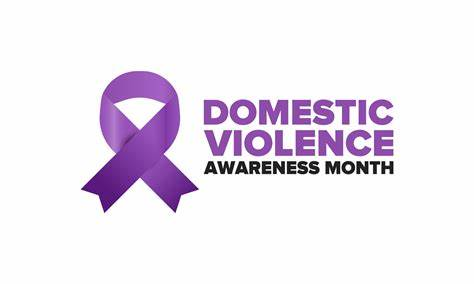
America acknowledges October as Domestic Violence Awareness Month each year, advocating and raising awareness for victims of domestic violence. According to the website www.tcfv.org/awareness/, in October 1981, the National Coalition Against Domestic Violence created a Day of Unity to connect advocates in local, state, and national governments to end violence against women and children. The Day of Unity was an entire week devoted to activities and programs, such as mourning those who died because of domestic violence, celebrating those who have survived, and connecting those who work to end violence.
Our nation observed the first Domestic Violence Awareness Month and established the first national domestic violence toll-free hotline in October 1987; however, it was in 1989 that Congress passed Public Law 101-112, a proclamation resolved by the Senate and the House of Representatives, designating October as National Domestic Violence Awareness Month.
The website www.justice.gov/ovw/domestic-violence defines domestic violence as a pattern of abusive behavior in any relationship used by one partner to gain or maintain power and control over another intimate partner. Domestic violence involves behaviors that intimidate, manipulate, humiliate, isolate, terrorize, threaten, blame, or hurt another person in a relationship. The website does not only define domestic violence as physical abuse, such as hitting, slapping, shoving, pinching, hair pulling, denying a partner medical care, or forcing alcohol and drugs upon them; it also defines it as sexual, emotional, economic, psychological, or technical actions.
The website defines sexual abuse as forcing any sexual contact or behavior without the partner’s consent, such as martial rape, attacks on sexual parts of the body, coercing sex after physical violence occurred, or treating someone in a sexually demeaning manner. Emotional abuse undermines an individual’s sense of self-worth or self-esteem through constant criticism, diminishing their abilities, name-calling, or damaging their relationship with children. The website defines economic abuse as controlling or restraining a person’s ability to acquire, use, or maintain economic resources to which they are entitled, such as money, assets, credit, or financial information—this includes whether a parent or a legal guardian of a child, a spouse or a family member serving as a power of attorney or a conservator of an infirm partner or a relative, economic abuse involves unfairly using or restricting a person’s resources through coercion, fraud, or manipulation. The website defines psychological abuse as elements that cause threats by intimidation, such as threatening physical harm to partners and their friends, children, and friends, destroying property and pets, and forcing isolation from family, friends, school, and jobs. The website defines technological abuse as the misuse of technology, such as internet-enabled devices, online spaces and platforms, computers, mobile devices, cameras and imaging programs, apps, and location-tracking devices, to threaten, control, harass, exploit, and monitor another person.
I pray that we will remember those who lost their lives to domestic violence throughout October and that God brings comfort and peace to families and friends grieving their loss.
I pray that God’s spirit will call out to all victims of domestic violence to come to Him for protection, for Psalm 72:14 says He will redeem their life from violence because their blood is precious in His sight (New King James Version).
In Psalm 12:5, the Lord says He will rise and rescue those affected by violence (New Living Translation); therefore, I pray that He will support Domestic Violence Awareness Month and work with all advocates of the hotlines, giving sufficient help to the affected victims. If you are a victim of domestic violence or know someone experiencing it, call the Alabama Domestic Violence Hotline at 1-800-650-6522 or the National Helpline at either 1-800-799-SAFE (7233) or 1-800-787-3224 (TTY).
To find domestic violence and programs nearby, visit the website www.domesticshelters.org/help—Kenneth Sullivan.


